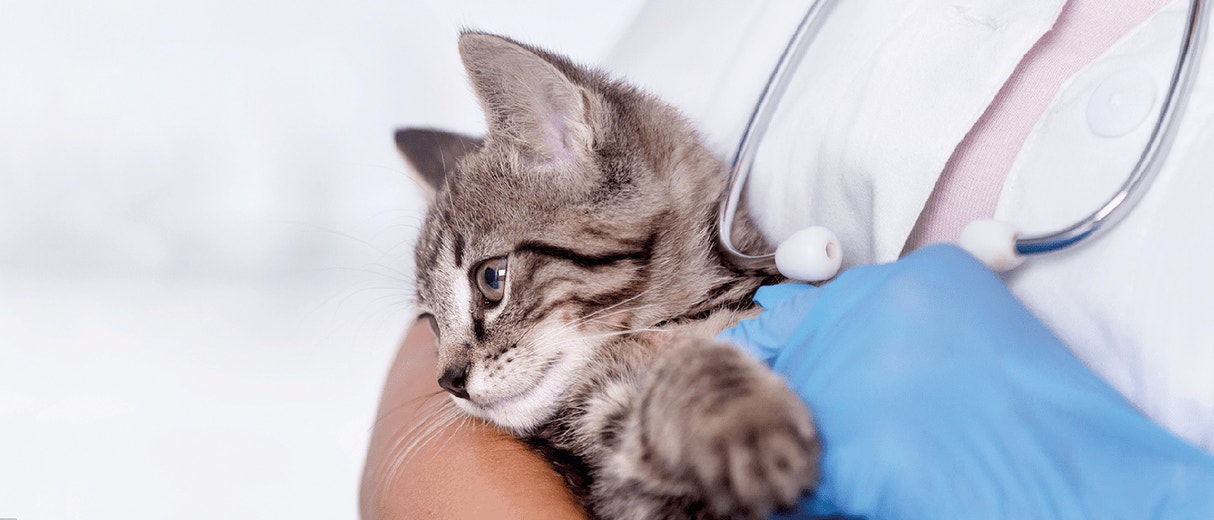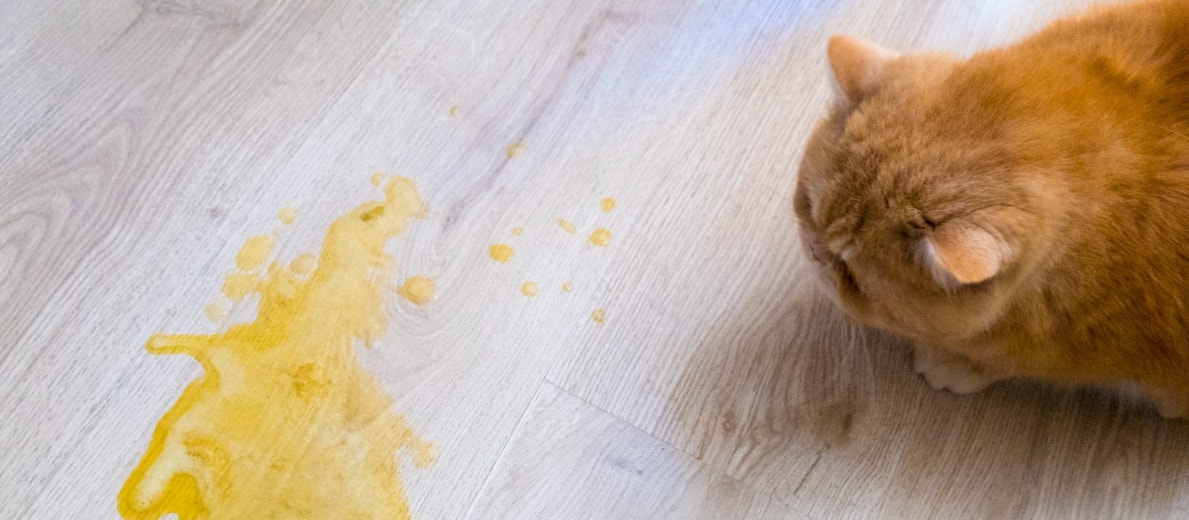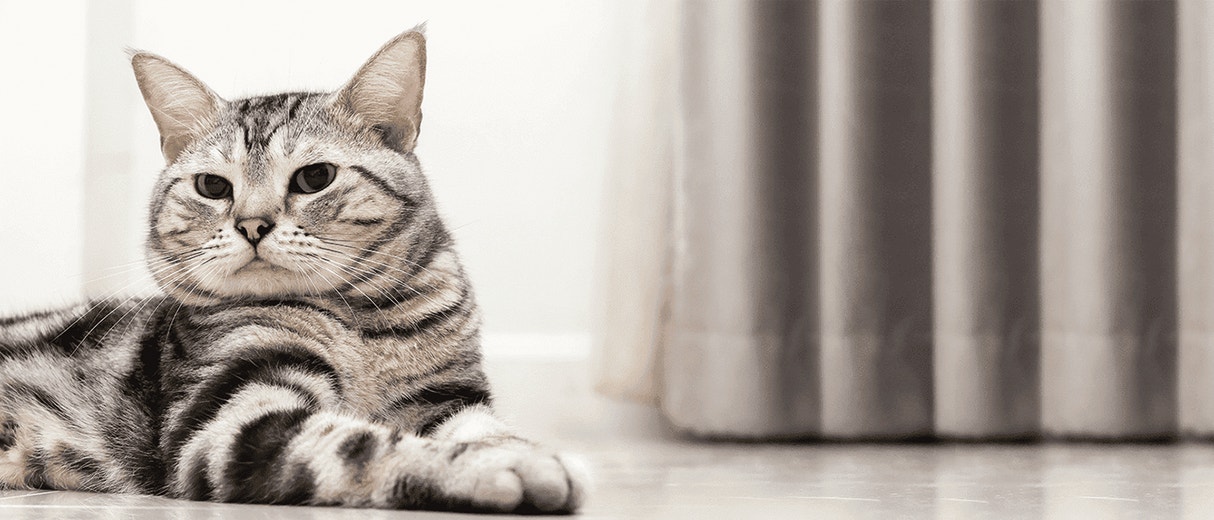
Nutritional And Balanced Kitten Diet
What is the appropriate food for kittens? When your kitten is born, their mother’s milk is the best kitten food. It provides complete nourishment for your kitten. However, as your kitten grows, it should be weaned off their mother’s milk and introduced to specially crafted food for kittens. This helps your kitten to switch to solid food and obtain the nutrition it requires as it grows.
Kittens have specific requirements and greater nutritional needs than adult cats. Your kitten grows rapidly and is very active! So, nourishing your kitten with food for kittens that meet these needs is very important. Kittens are carnivores and require meat to obtain all the nutrients it needs. Their teeth, tongue and digestive system are designed for eating meat. Besides having the right nutrients, kitten food needs to be easy to digest too. Kitten food is formulated with all the nutrients your kitten needs, in smaller amounts for their tiny stomachs.
What Should Kitten Food Contain?
Protein
Protein is very important for kittens. They use it for many different processes as they grow. Proteins are made up of smaller building blocks called amino acids. Kittens need essential amino acids such as taurine, arginine, methionine, and cysteine. These essential amino acids help to promote the development of a healthy brain, good vision, and soft healthy fur. Essential amino acids cannot be made by your kitten’s body. So, it is very important to provide these essential amino acids through their diet.
Essential fatty acids
Essential fatty acids are needed to keep your kitten’s skin, fur, immune system, and metabolism healthy. Essential fatty acids also provide a lot of energy for your active kitten to grow and play. It also makes their food tastier!
Vitamins
Vitamins are necessary in your kitten’s diet for a wide range of metabolic activities and growth. There are many different vitamins, and each one has its own special role. For example, vitamin A is important for good vision, vitamin D is needed for bone growth, and vitamin K helps in blood clotting if your kitten gets injured (hopefully not!).
Minerals
Minerals are important in your kitten’s diet. It helps your kitten’s body to function normally and healthily. The most important minerals for your kitten include calcium, phosphorous, and magnesium. This helps in healthy bone growth, nerve function and muscle metabolism. Kitten food has all these minerals in the right amounts for your growing kitten.
Carbohydrates and fibres
Kittens use carbohydrates either as an energy source, or as a source of dietary fibre. Fibre helps to support good digestion. Kitten food is formulated carefully to suit your kitten’s unique nutritional needs.
Whiskas® kitten food is a perfectly balanced and delicious everyday diet for your little kitten. Give your kitten the best kitten food with Whiskas® kitten food for a happy and healthy life.
Kitten Feeding Chart
As kittens grow, their feeding patterns and nutritional needs change as well. This kitten feeding chart can be used as a guide on how to feed your kitten with Whiskas® kitten food as it goes through the different stages of growth.
From birth to 2 months old:
Kittens feed on cat milk from their mother. At around 1 month old, you can introduce small bites of wet kitten food as they start to wean off cat milk.
2 to 4 months old:
Start with Whiskas® kitten food. Feed kittens 4 to 5 pouches of wet kitten food per day. If your kitten is ready for a mixture of wet and dry food, reduce the amount of wet kitten food to 2 pouches and feed 18-40g dry kitten food accordingly. Feed them 4-5 times in a day.
4 to 8 months old:
Increase the amount of wet kitten food to 5 to 6 pouches per day. If the kitten is on a mixed diet, use 2 pouches of wet kitten food and 40-48g of dry kitten food. Feed them 4-5 times in a day.
8 to 12 months old:
Feed kittens 6-7 pouches of wet kitten food per day, or a mixture of 2 pouches of wet kitten food and 48 g of dry kitten food. Reduce the feeding frequency to 2-4 times in a day.
Diet Plan To Maintain A Kitten’s Weight
Weight gain is good sign that the diet is providing the essential nutrients your kitten needs. It is recommended to weigh kittens at the same time every day. This helps you to keep track of their weight gain and to prevent over-feeding them (even if it’s hard to resist!).
As soon as kittens are weaned, they should be on kitten food and water. Wet food can be beneficial for their kidneys and bladders, while dry food helps to keep their teeth in good condition. The important thing is to provide a good mix of both wet and dry food in the right amounts! Some tips to keep your kitten’s weight in check include weighing out their food portions, encouraging play time and exercise, and dividing their daily meals into smaller, more frequent meals. This kitten weight chart shows the approximate weight range of kittens according to their age:
| Age | Weight |
| 1 - 2 months old | 0.35 - 0.6 kg |
| 2 - 3 months old | 0.8 - 1.2 kg |
| 3 - 4 months old | 1.4 - 2.1 kg |
| 4 - 6 months old | 1.8 - 2.8 kg |
| 6 - 9 months old | 2.4 - 3.9 kg |
| 9 - 12 months old | 3.5 - 5.0 kg |
Cat Diet Dropdown FAQ
-
How often should you feed a kitten?
Kittens should be fed frequently in small amounts throughout the day. For kittens over 2 months old, kitten food can be given 4 to 5 times a day. From 6 to 12 months old, the number of meals can be reduced to 2 to 4 times a day
What should your kitten drink?
It is important to keep your kitten hydrated, especially if you are feeding them dry food. Kittens do not need milk once they have been weaned off. Instead of milk, it is best to give them clean and fresh water to drink. Ensure that your kitten has fresh water to drink wherever and whenever they need it. Generally, you should start giving them water to drink once you have started giving them a little solid food. Give them fresh, clean water in a shallow bowl. It is best to place it in places where they like to relax. You should not place it in the same place as where they eat.
When should you switch kittens to kitten food?
Besides baby cat food, kittens can try small bites of solid food to familiarise themselves with it. At 2 months old, they should be weaned off mother’s milk and switch from baby cat food to wet kitten food.
Foods to avoid
Although you may have good intentions, some human foods are not recommended for cats. Human foods are high in calories, and lack the essential nutrients that cats need. Some of the food that we eat can be very harmful to cats. This includes onions and garlic, milk and dairy products, alcohol, grapes and raisins, caffeine, chocolate, raw eggs and meats, and fat trimmings and bones.
Can kittens eat human food?
Feeding kittens human food can have detrimental effects as kittens have very different dietary requirements compared to humans. Kittens require about 40 essential nutrients to deliver complete nutrition, whether the food is dry, wet, or semi-moist.
Since kittens are carnivores, animal meat is one of the safest human foods to give them as they rely on nutrients found in animal products. There are 11 essential amino acids for kittens that must be supplied in their diet:
- Arginine
- Histidine
- Isoleucine
- Leucine
- Lysine
- Methionine
- Phenylalanine
- Taurine
- Threonine
- Tryptophan
- Valine
These essential amino acids, along with other essential nutrients, are best supplied by animal meat and organs (liver, heart, and kidney). Fish, meat, and poultry are the best choices as they provide all the protein and essential nutrients your kitten needs. It can be minced, ground, or blended so your kitten can eat it easily. However, it is not recommended to feed your kitten too much fish such as tuna and salmon. These fish contain high levels of mercury and can cause mercury poisoning (dizziness, loss of balance and coordination). Make sure everything is cooked thoroughly to destroy any bacteria or parasites before feeding your kitten.
Besides meat, kittens also eat plants occasionally for roughage or fibre. The recommended vegetables for your kitten are carrots, broccoli, and spinach that have been steamed or boiled. These vegetables are also a source for vitamins and minerals. Similarly, make sure that all vegetables are washed and cleaned thoroughly before cooking. Avoid feeding your kitten raw vegetables as it cannot be digested and can cause digestion problems.
How to feed a kitten up to 4 weeks old
As kittens grow, they require different types of food and different ways of feeding to support its growth and development. When kittens are born, they obtain all the nutrition they need from their mother’s milk, which is the best baby cat food. It is important to ensure that your kittens and the mother cat are safe and away from any disturbances. This allows them to feed peacefully. Keep your kittens warm and place them in a comfortable position on their stomach as they feed. After 4 weeks, they should be weaned off and introduced to food for kittens.
How to feed a kitten from 4 weeks to 4 months old
Once your kitten reaches 4 weeks old, it may start showing an interest in solid food! You can start to gradually wean off your kitten and introduce them to a bit of solid kitten food. Dry kitten food can be mixed with water so that it is soft enough for kittens to eat easily. Wet kitten food can also be used. Place the food in a shallow dish or bowl to get them used to good eating habits. It is essential to learn how to feed a kitten properly with the right food to help them grow happily and healthily.
How to make kitten food
Homemade kitten food that is prepared using natural and fresh ingredients is a great way to introduce your kitten to different tastes and textures. This helps in their growth and development. Since kittens are carnivores, they can eat most kinds of meat like chicken, beef, and fish that have been minced or ground and then cooked.
Kittens require 4 times more protein than humans. In order to fulfil this need, homemade kitten food needs to contain at least 70 g of protein per 1000 kcal of metabolisable energy (ME). This is equal to roughly 220 g of chicken meat, or 320 g of fish. The meat should be cooked, either by steaming or boiling it. However, if you don’t know how to make kitten food, or don’t have the time to - don’t worry! Whiskas® kitten food is the best kitten food that covers all of your kitten’s nutritional needs in a wide range of delicious flavours
What should you feed a fussy kitten?
Many kittens have a preference for certain textures and flavours. Try to feed your kitten a mixture of wet and dry kitten food. You can also try the wide variety of Whiskas® kitten food to find your kitten’s favourite food.
What is the ideal diet for a kitten?
Kittens need a complete diet with the right balance of proteins, essential fatty acids, carbohydrates, minerals and vitamins. Whiskas® offers a wide range of kitten food with all the nutrition they need.
What food should you feed a newborn kitten?
Mother’s milk is the best kitten food (below 2 months) as it contains DHA which helps in the early stages of development. The colostrum is also very high in protein and helps to strengthen a kitten’s immune system.
What do I need to know after a cat vaccine?
As important as cat vaccinations are, it can leave your furry munchkin distressed, anxious and confused. To help your cat once it has been vaccinated, you can provide them with a warm, cosy bed to rest and recover, ensure they have easy access to food and water to stay well-fed and hydrated, and avoid getting them excited or riled up for nothing. With sufficient rest, love and care, your cat can get over the distress of vaccination in no time!
Is a vaccine necessary for cats?
Most cats have a higher resistance to diseases. However, in their infancy, cats can often be susceptible to various diseases, and to avoid any severe health risks that can prove fatal, certain preventive measures must be adopted. Cat vaccinations are one such measure that can significantly lower the chances of your furry pal getting sick. In addition, vaccinations are also important as they play a vital role in preventing the transmission of viruses from one cat to another, or to humans.
What are the important vaccines for cats?
To avoid any severe health complications, most cats are required to receive cat injections with core vaccines, including rabies, feline rhinotracheitis, feline calicivirus, and feline panleukopenia vaccines. The other non-core vaccinations your cat might require are the feline leukemia virus, chlamydophila felis, and bordetella bronchiseptica vaccinations, as well as cat booster vaccines.
What is a 3-in-1 vaccine for cats?
Of the cat injections that are recommended for cats, the 3-in-1 vaccine is one of the most essential vaccines that protect your cute furball against infectious diseases. The 3-in-1 vaccine, as the name suggests, is responsible for safeguarding against three diseases, namely - feline calicivirus, feline panleukopenia and feline viral rhinotracheitis. The 3-in-1 vaccine in cats is usually administered through injections.
What vaccines does a cat need?
Cats often need vaccines including rabies, tricat and tetracat, as well as the vaccines required for specific diseases. Other than the panleukopenia (or feline distemper), feline calicivirus and feline viral rhinotracheitis, your little pal might also require additional vaccination shots to prevent common diseases like feline leukaemia and bordetella. The purpose of cat vaccine is to help develop a stronger immune system and ward off potentially harmful diseases.
How long can a cat go without pooping after diarrhoea?
If the constipation is mild, regardless of after diarrhoea or in general, it should be fine. But if your cat doesn’t pass faeces for 48-72 hours, consult a vet.
Can a cat have diarrhoea with bowel obstruction?
Diarrhoea is one of the symptoms of intestinal bowel obstruction. Partial obstruction causes diarrhoea while complete obstruction causes inability to pass stool and gas. It is an extremely serious condition and requires immediate medical attention.
How long does it take for a cat to get Un-constipated?
Depending on the cause, it can take anything between a few days to 12 weeks. Usually, a diet change takes time to show effect, whereas medications can give quick relief.
Can a cat be constipated and still have diarrhoea?
When a cat has megacolon, they can have stool build-up in their colon causing constipation. However, sometime your fur kiddos can leak a little lose stool from around the hard faeces, which an be misinterpreted as diarrhoea. If you notice constipation and diarrhoea at the same time in your furball, take it to a vet without ado.
What are healthy foods for cats with constipation?
Cat food rich in fibres and probiotics can be good for cats with constipation. Also, if your cat has constipation, feed it wet food instead of dry food as that will help increase their water intake.
Does neutering calm a kitten down?
Spaying female kittens can reduce their libido or sex drive. Without adequate sex drive, the female cat is unlikely to respond to mating calls or look for potential mates in heat. So, neutering can calm down female kittens, making them more affectionate and loving.
What happens if you neuter a kitten too early?
Though early cat neutering can be helpful in population control and avoiding unwanted litters, if carried out at a drastically young age, neutering can delay the closure of bone plates, affecting the kitten’s growth. Feline babies neutered too early also can lead to a narrower urethra, increasing the risks of urinary blockages.
Do kittens change after being neutered?
Behaviours, such as their personality, training, and preferences are unlikely to change in cats after neuter. Neutering male fur babies cut them off from the source of testosterone, the male sex hormone, which can result in a change in behaviours that are driven by the sex hormones, such as roaming and aggression.
What is the best age to neuter a male kitten?
Spaying and neutering for cats are best done between the age of 5 to 6 months, the perfect age to neuter cat. However, no two cats are alike, so it is always wiser to consult your veterinarian and seek professional advice on when to get your cat neutered or spayed. Make sure your kitten receives the after-neuter care cat it deserves following the procedure.
What age do kittens drink water?
Newborn kittens at their infancy do not need to be given any additional water as they are entirely dependent on their mother's milk for nutrition and moisture. However, kittens over 4 weeks of age must drink at least 70 ml water regularly.
Do 4 week old kittens eat solid food?
Yes, kittens at 4 weeks of age must be gradually transitioned to solid food. However, dry cat food or crunchy cat treats might not be the best idea. Instead, try feeding your weaning kitten home cooked meals or wet cat food in smaller bite-sized portions.
What do you feed a 4 week old kitten?
Kittens aged 4 weeks or more should be prepared for the transitive process of weaning, and must be gradually introduced to solid food. Home cooked meals with low salt, oil and spices, as well as commercially available wet cat food are perfect for weaning kittens.
How do you introduce solid food to kittens?
Wondering when should kittens be weaned? It is unwise to suddenly introduce your weaning kitten to solid food. Instead, your little furball must undergo a gradual transition process of switching from milk to solid food, known as weaning, and is a crucial event in a feline's life.
How much to feed a kitten?
Generally, you should feed a kitten until its belly feels full. For newborn kittens, it is recommended to feed kittens 4 to 5 pouches of Whiskas® wet kitten food.
How do I store kitten food?
Bags of dry kitten and cat food should be stored in a cool, dry place. For wet kitten food that has been opened, store it in an airtight container and place it in the refrigerator.
How do I feed a fussy kitten?
Many kittens have a preference for certain textures and flavours. Try to feed your kitten a mixture of wet and dry kitten food. You can also try the wide variety of Whiskas® kitten food to find your kitten’s favourite food.
How often to feed kittens?
It is recommended to feed kittens twice a day, either with dry food, wet food, or both. You can follow our feeding guide that can be found on every Whiskas® kitten food bag.
What do kittens eat?
Most first-time owners may be wondering; what do kittens eat? From birth to 4 weeks old, kittens will have milk from their mothers. After that, they can start trying solid food. If you’re wondering on how to feed a kitten during this time, consider mixing some dry food with kitten milk or water, or use wet food so they can eat it easily.
See More Articles Like This




